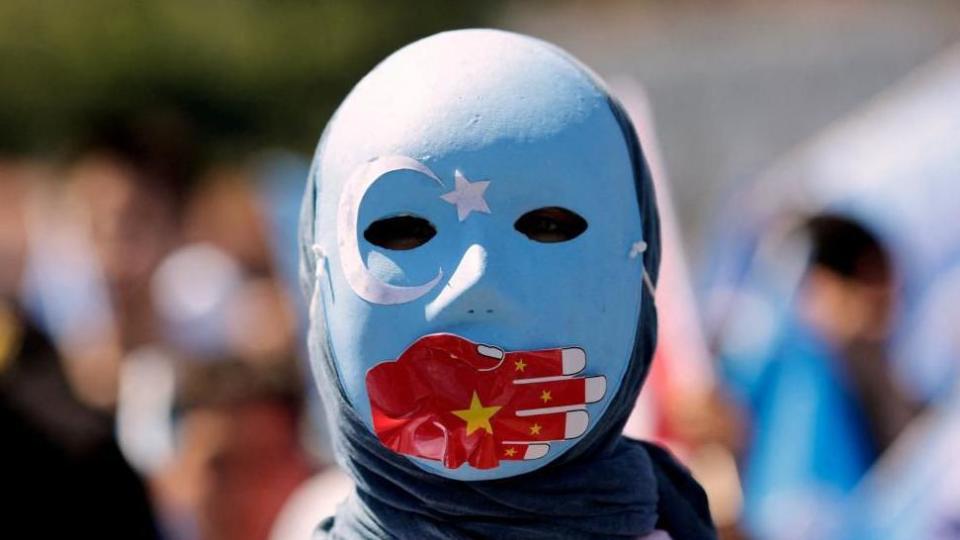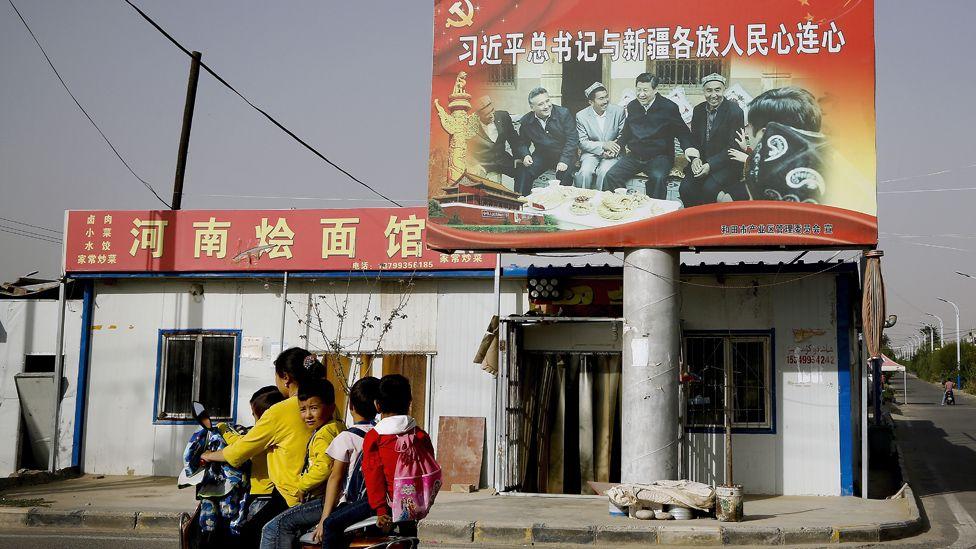China has actually altered the names of numerous towns in Xinjiang area in a relocation targeted at removing Uyghur Muslim culture, Human being Rights Watch (HRW) states.
According to a report by the group, numerous towns in Xinjiang with names associated with the religious beliefs, history or culture of Uyghurs were changed in between 2009 and 2023.
Words such as “sultan” and “shrine” are vanishing from name – to be changed with terms such as “consistency” and “joy”, according to the research study, which is based upon China’s own released information.
China’s embassy in London rejected the claims.
Recently, Chinese authorities have actually been drastically revamping society in Xinjiang in an effort to absorb its minority Uyghur population into mainstream Chinese culture.

Scientists from HRW and Norway-based organisation Uyghur Hjelp studied the names of towns in Xinjiang from the site of the National Bureau of Stats of China over the 14-year duration.
They discovered the names of 3,600 of the 25,000 towns in Xinjiang were altered throughout this time.
While most of these name modifications “appear ordinary”, HRW stated, around one 5th – or 630 modifications – eliminate recommendations to Uyghur religious beliefs, culture or history.
Words freighted with significance for China’s Uyghur population – consisting of Hoja, a title for a Sufi spiritual instructor, and political or honorific titles such as Sultan and plead – have actually been changed with words HRW claims show “current Chinese Communist Celebration ideology”, consisting of “consistency” and “joy”.
In one example highlighted by the report, Aq Meschit (“white mosque”) in Akto County, a town in the southwest of Xinjiang, was relabelled Unity town in 2018.
A growing body of proof indicate organized human rights abuses versus the nation’s Uyghur Muslim population. Beijing rejects the allegations.
The majority of China’s Uygur Muslims reside in the north-west of the nation, in locations such as Xinjiang, Qinghai, Gansu and Ningxia.
In a declaration to the BBC, a Chinese embassy representative in London rejected the allegations.
“Individuals of all ethnic groups delight in liberty of faith under the law. The languages and cultures of the Uyghurs and other ethnic minorities are safeguarded and promoted,” they stated.
There are approximately 20 million Muslims in China. While China is formally an atheist nation, the authorities state they are tolerant of spiritual liberty.
Nevertheless, in the last few years observers state they have actually experienced a crackdown on organised religious beliefs throughout the nation.
According to HRW, while the renaming of towns and towns appears continuous, the majority of the name were altered in between 2017 and 2019.
The group declares this accompanies an escalation in hostilities versus the Uyghur population in Xinjiang.
China has actually utilized the danger of “violent terrorism, radicalisation and separatism” in the past to validate the mass detention of the nation’s minority Uyghur population.
Maya Wang, the acting China director at Human being Rights Watch, stated: “The Chinese authorities have actually been altering numerous town names in Xinjiang from those abundant in implying for Uyghurs to those that show federal government propaganda
“These name modifications appear part of Chinese federal government efforts to remove the cultural and spiritual expressions of Uyghurs,” she included.
The research study follows a report released in 2015 in which HRW implicated the Chinese state of closing, damaging and repurposing mosques in an effort to suppress the practise of Islam in China.
